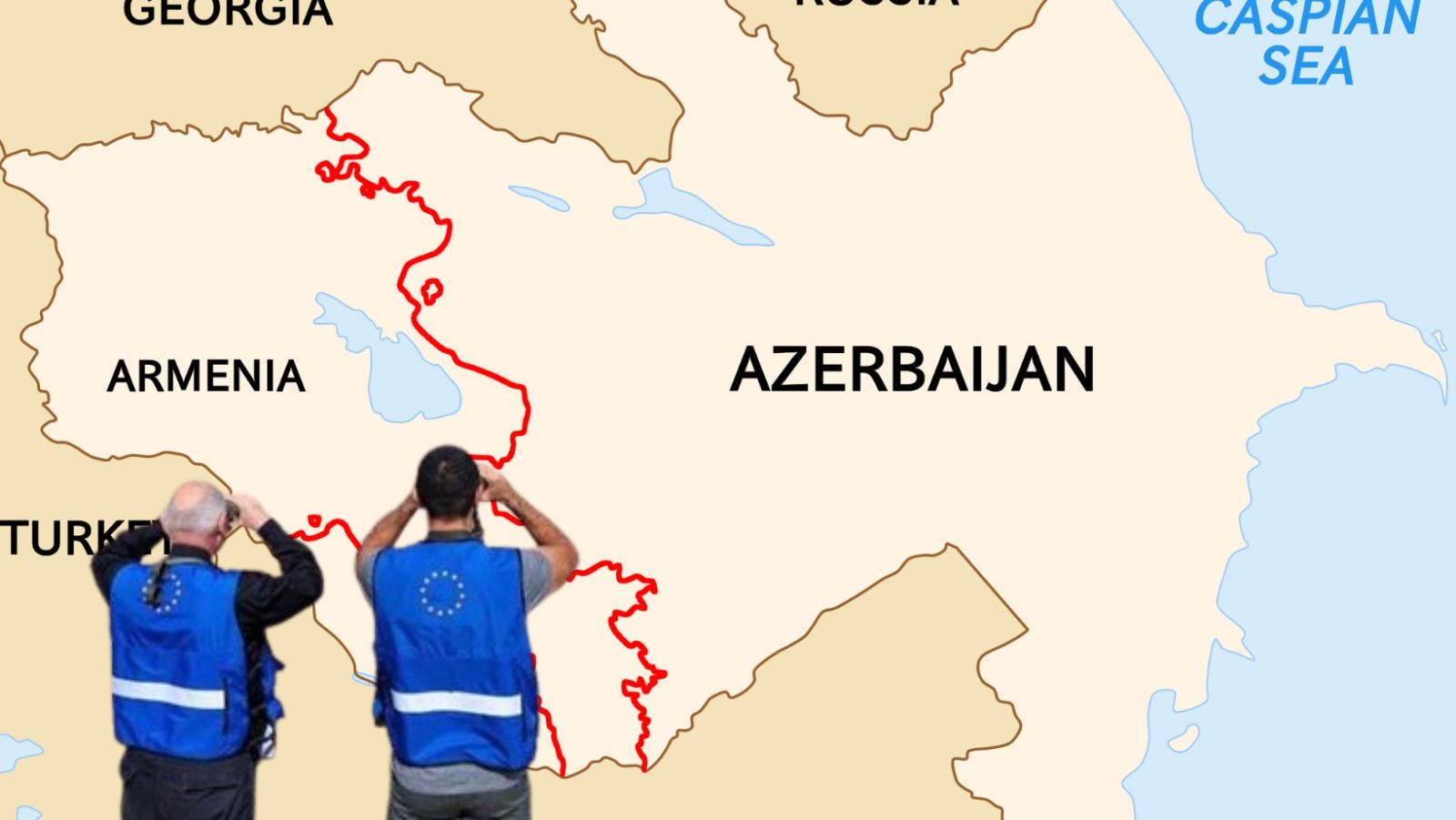Peace progress in S Caucasus undermines plans of West

In recent days, the fastest progress towards the peace treaty between Azerbaijan and Armenia has been a concern for some anti-Azerbaijan forces. While the Armenian authorities say they are ready for peace with Azerbaijan, the opposition forces in the country go the extra mile to hamper it.
Thus, protests against the return of 4 villages of Gazakh region to Azerbaijan are being held in Tavush. Local residents blocked roads in Tavush province, including the highway to Georgia and the Yerevan-Goyche road.
The institution that supports these protests the most is the All-Armenian Church. It is interesting that an enterprise, which should instill peace and kindness in people, meddles in politics and creates tension in the region. It should be noted that since April, under the leadership of Bagrat Galstyan, Archbishop of the Tavush Diocese of Armenia, opposition slogans have been raised against Prime Minister Nikol Pashinyan.
This coincides with the time when Pashinyan agreed to return
Azerbaijan's 4 villages, which have been under Armenian occupation
for over 30 years.
It seems that the church is not out of control, and some other
forces are behind it to oppose the authorities.
At this point, all suppositions focus on the West. It should not be forgotten that the signing of the peace agreement in the region worries the West the most.
If we look at history, the basis of the wars of two historical Turkish states, the Safavid and Ottoman empires, which resulted in huge losses, was due to the agency networks and insidious plans of the West. For many years, two great powers fought a war; human lives and material resources were mobilised, and as a result, both sides suffered. Taking advantage of this tension, Western kingdoms tried to conduct a policy of expansion in the region.
Even in modern times, the West remains faithful to its tradition and tries to coerce the Armenian people to war in order to hinder the development and peace initiatives for the security of the South Caucasus.
The West, which once condemned the activities of Russian peacekeepers in Garabagh, is now, for some reason, upset by Moscow's premature withdrawal from the region. It even wants peacekeeping forces to return to Garabagh. Thus, Senior expert at the Carnegie Endowment and specialist on Garabagh Tomas De Waal says Russian peacekeepers should have stayed in Garabagh.
Because the presence of peacekeepers in Garabagh created ample conditions for Western intervention in the region, Russia seemed like a potential threat in the region. Today, the West has to put an end to its dreams about the region.
It should not be forgotten that the conclusion of the peace treaty between Azerbaijan and Armenia guarantees development in many areas.
First of all, if there is no war or conflict in the region, there is no need for the mediation of external forces. This means that Azerbaijan and Armenia will not only recognise their borders but will also start cooperating within the framework of the open door principle. So, is the West happy or sad about it?
Secondly, Armenia's signing of a peace treaty with Azerbaijan will contribute to its relations with Turkiye, and the borders will open, which will massively affect Armenia's economic structure. On the other hand, Armenia will also benefit from Azerbaijan's giant oil and gas projects as well as its projects, in green energy.
Thirdly, and most importantly, the development of Armenia in the region will undermine the plans of colonialist countries like France to influence the South Caucasus for evil purposes. Yerevan will no longer have to be a toy for other countries.
Undoubtedly, the signing of the peace treaty in the region will contribute a lot to Armenia as well as Azerbaijan and the South Caucasus as a whole.
However, the listed facts are not in the interest of the West. The economic and social development of the South Caucasus will not be though as good intention by some Western countries pursuing colonialist policy.
For example, political analyst Thomas De Waal, who made a statement to the Armenians, demonstrated that he belongs to this category in every sense. He said that neither the West nor he is satisfied with the current situation in the South Caucasus. However, in his comment on De Waal's statement, British expert Neil Watson has called him biased. Watson added that de Waal is actually aware of the real situation in South Caucasus.
"Thomas de Waal, despite being an acknowledged expert on the South Caucasus, has repeatedly proven that he has biased sympathies, publicly regarding Azerbaijan as the aggressor in the Garabagh conflict. The fact is that he is fully aware that, following the withdrawal of the so-called Russian ‘peacekeepers’, Armenia sits completely isolated in the South Caucasus and is duty bound to comply with requests from Azerbaijan, which has sophisticated weaponry and the support of Israel and Turkiye.
He clearly believes that there is a risk that Azerbaijan will now try to invade the remainder of Armenia, despite President Ilham Aliyev repeatedly pledging that this is not an objective. Furthermore, the so-called ‘peacekeeping’ troops will now be redeployed in Ukraine, thereby making resolution of that problem even more difficult and challenging," the expert added.
He also said that Azerbaijan is no longer under the influence of Soviet Union and never will be under the influence of NATO and EU either.
"Europe is seeing to establish an outpost in the former Soviet Union that was formerly unavailable. Clearly Azerbaijan, having utilised the Russian expansionist mentality to its advantage for a short period, is never going to come under the direct influence of the EU or NATO," Watson noted.
The expert said that Armenia is using this situation and can become a satellite of European Union in the South Caucasus.
"Armenia, a Christian country with negligible resources, a dwindling population and widespread diaspora in the US and France, particularly, can become an EU satellite in the South Caucasus and in the former Soviet space, particularly now that Russian involvement has been virtually been eliminated. Furthermore, the EU is keen to support Prime Minister Pashinyan and his anti-Russian stance, rather than a possibly pro-Russian future successor," he stressed.
Talking about the protest that is ongoing in Tavush, expert noted that Armenians want to gain foreign media's attention.
"I do believe they are taking place to garner western support and gain coverage from the western media in the hope of further delaying the signing of a peace treaty on a purely bilateral basis between Azerbaijan and Armenia," N. Watson concluded.
---
Follow us on Twitter @AzerNewsAz
Here we are to serve you with news right now. It does not cost much, but worth your attention.
Choose to support open, independent, quality journalism and subscribe on a monthly basis.
By subscribing to our online newspaper, you can have full digital access to all news, analysis, and much more.
You can also follow AzerNEWS on Twitter @AzerNewsAz or Facebook @AzerNewsNewspaper
Thank you!

